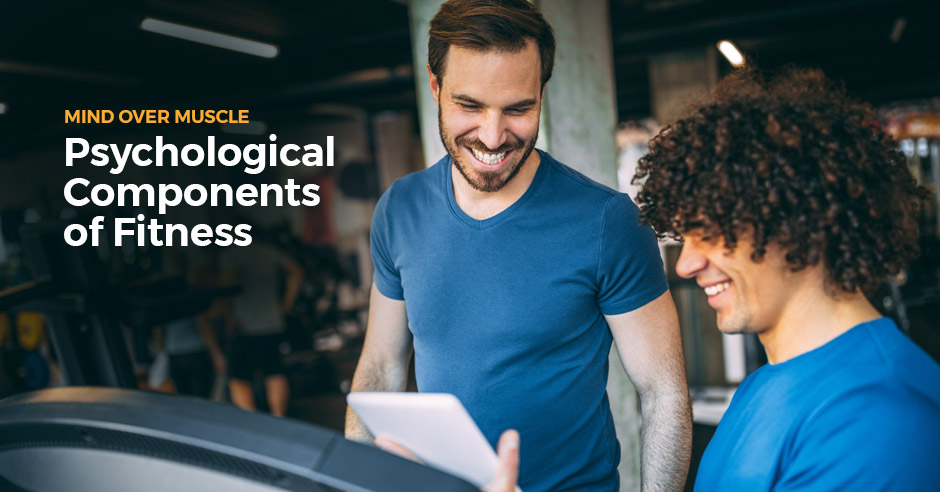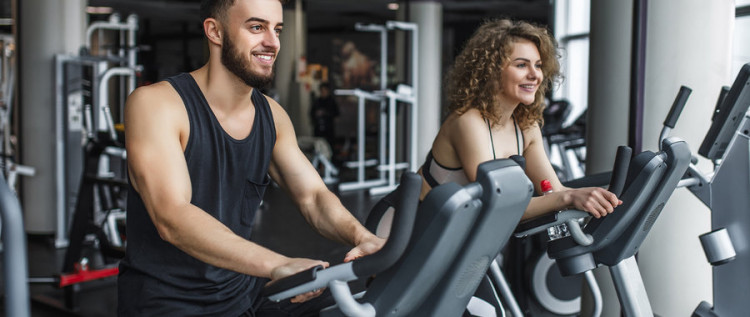
Physical fitness often conjures images of muscular bodies, disciplined diet regimes, and rigorous workout schedules. However, in the realm of fitness, a critical yet frequently overlooked factor is the power of the mind. The mind-body connection, rooted in psychology, plays a substantial role in achieving and maintaining optimal physical fitness.
Over the past few years, the domain of sports and exercise psychology has emerged, suggesting that the journey towards peak physical fitness goes beyond the physical aspect, significantly involving cognitive and emotional processing. As the saying goes, "it's all in the mind." In this comprehensive exploration, we delve into the profound role psychology plays in attaining and preserving high physical fitness levels. In addition, we shall shed light on the potential role of cognitive enhancers, known as nootropics, in boosting mental attributes like focus, essential in fitness achievement

Understanding the Psychological Facets in Physical Fitness
The Art and Science of Goal Setting
Firstly, one cannot overlook the significance of goal setting in fitness achievement. A clear, specific, and challenging goal can have a powerful impact on an individual's performance. It provides a clear direction, enhances motivation, and, most importantly, gives a sense of purpose. The goal-setting theory proposed by Locke & Latham (2002) strongly advocates that challenging goals combined with appropriate feedback contribute to higher and better task performance.
In the context of physical fitness, whether it's achieving a specific body weight, lifting a certain amount of weight, or completing a marathon in record time, having a goal helps concentrate efforts and maintain momentum over time. The connection of goal-setting with self-efficacy – one's belief in one's abilities to succeed in specific situations – further intensifies this effect (Bandura, 1977).
Pain, Fatigue, and the Power of Perception
Every fitness enthusiast would attest that physical fitness isn't all glory. It often involves pushing one's limits and enduring pain and fatigue. But how does one continue when the body screams stop? The answer lies in our perception of fatigue and pain. The Central Governor Model (Noakes, 2012) proposes that fatigue isn't merely a physical phenomenon but largely a mentally regulated one. The brain, in response to bodily signals, manipulates the perception of effort to ensure the body's protection, acting like a "central governor."
Therefore, psychological techniques, such as cognitive restructuring, mindfulness, and distraction, can be beneficial. These tools can help change the perception of fatigue and pain, allowing individuals to push harder and endure longer.
Visualize to Materialize: The Power of Mental Imagery
Visualization or mental imagery is another psychological strategy that can enhance physical performance. This technique involves creating or recreating vivid images in the mind, which can lead to improvements in the specific movements being visualized.
Mental rehearsal of physical activities can lead to neural adaptations in the brain that mimic those resulting from physical practice (Cumming & Williams, 2012). Athletes often use this strategy to visualize their performance, which in turn, improves muscle memory and execution. Therefore, combining physical training with mental imagery can have synergistic effects on overall performance

The Cognitive Boost: Nootropics and Physical Fitness
As we delve into the cognitive aspects of physical fitness, it is worth discussing nootropics or "smart drugs." These substances, natural or synthetic, are known to enhance cognitive functions such as memory, creativity, motivation, and importantly for our discussion, focus and concentration.
The Role of Supplements To Improve Focus
The fitness domain can hugely benefit from improved focus and concentration during intense efforts. The best nootropics improve focus, for example, the combination of L-Theanine and caffeine, commonly found in green tea, is known to increase focus, attention, and mental alertness. This enables better and more consistent performance (Haskell et al., 2008).
Another nootropic, Modafinil, is gaining recognition for its cognitive enhancement properties. Studies have found Modafinil effective in improving alertness, attention, and overall cognitive function (Battleday & Brem, 2015).
The Role of Stress Management in Physical Fitness
Physical training imposes a form of stress on the body. While this stress stimulates adaptation and growth, chronic or excessive stress can be detrimental to performance and overall health. Managing stress effectively, both physical and psychological, can enhance recovery, improve performance, and prevent overtraining (Kellmann, 2002). Techniques such as progressive muscle relaxation, deep breathing, and mindfulness meditation can be beneficial.
The Impact of Sleep on Physical Fitness
Sleep plays a critical role in physical fitness. It aids in recovery, muscle growth, and mental well-being. Poor sleep quality or quantity can lead to impaired performance, slower recovery, and increased injury risk (Halson, 2014). Therefore, incorporating good sleep hygiene is as crucial to fitness as diet and training

Role of Positive Self-Talk in Fitness
Positive self-talk, a psychological technique involving the use of positive affirmation or encouragement, can enhance motivation, reduce perceived effort, and improve performance (Tod et al., 2011). By cultivating a positive internal dialogue, individuals can improve their mental resilience and commitment to their fitness journey.
Nutrition and Cognition: A Dual Role in Physical Fitness
Nutrition plays a dual role in physical fitness. Alongside its physical benefits for energy supply and recovery, certain nutrients like Omega-3 fatty acids, B-vitamins, and antioxidants have been associated with improved cognitive function, mood, and stress resilience (Gómez-Pinilla, 2008). Hence, a balanced diet is crucial not only for physical but also mental fitness.
Group Dynamics and Social Support in Fitness
Physical fitness can often be a social activity. Group dynamics and social support have been shown to increase adherence to fitness programs, enhance motivation, and improve performance (Carron et al., 2005). Building a supportive fitness community, either offline or online, can therefore contribute to achieving fitness goals

The Reciprocal Influence: Impact of Exercise on Mental Health and Cognitive Performance
The influence between psychology and physical fitness is not one-sided. Just as the mind can profoundly influence our physical capabilities, engaging in regular physical exercise can have remarkable benefits on our mental health and cognitive performance.
Exercise as a Natural Mood Enhancer
Exercise is often hailed as a natural mood enhancer. Regular physical activity has been shown to reduce symptoms of depression and anxiety. It's believed that exercise triggers the release of endorphins, the body's natural mood elevators, promoting a sense of well-being (Craft & Perna, 2004).
Additionally, exercise can act as a mindfulness practice. By focusing on the body's movements and sensations during exercise, individuals can achieve a meditative state, helping to calm the mind and reduce stress.
Exercise and Cognitive Performance
Research also suggests that physical exercise can enhance cognitive performance. Regular physical activity has been associated with improvements in various cognitive domains, including attention, memory, executive functions, and even creativity (Hillman et al., 2008).
The physiological mechanisms underlying these effects are believed to include increased blood flow to the brain, reduction in inflammation and insulin resistance, and the release of growth factors—chemicals in the brain that affect the health of brain cells, the growth of new blood vessels in the brain, and even the abundance and survival of new brain cells (Gomez-Pinilla & Hillman, 2013).
Conclusion
Attaining and maintaining a high level of physical fitness is a multifaceted process, involving a delicate balance of physical exertion and psychological endurance. The exploration of the relationship between psychology and physical fitness, coupled with the understanding of nootropic-supported cognitive function, provides a more holistic perspective on achieving superior fitness outcomes. As we move towards a more integrative understanding of fitness, it becomes evident that the synergy of mind and muscle is an invaluable tool in our pursuit of optimal physical performance. Regular physical exercise can serve as a powerful tool not just for physical health and fitness, but also for mental health and cognitive performance. Thus, the relationship between physical fitness and psychology is truly reciprocal and synergistic













